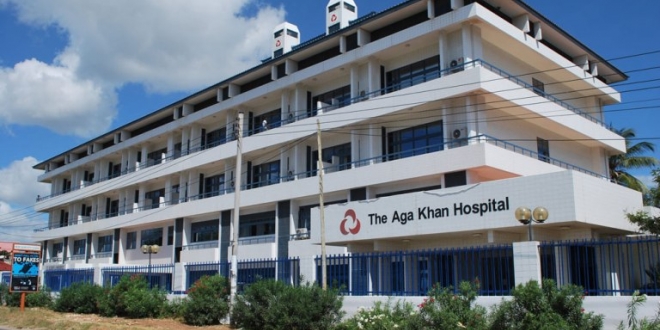In a bustling city like Dar es Salaam, access to exceptional healthcare is paramount. Have you ever wondered why some hospitals stand out more than others in providing top-notch medical care? Dar es Salaam is home to several acclaimed medical institutions that have become beacons of hope for many.
Among the top hospitals in the city, Muhimbili National Hospital stands out due to its status as a premier tertiary care center. It has a rich history dating back to 1910, catering to millions annually. Moreover, the Aga Khan Hospital is another notable mention, known for its advanced technology and specialized services, providing a range of healthcare solutions to the community.

Overview of Healthcare in Dar es Salaam
Dar es Salaam, the largest city in Tanzania, has a diverse healthcare system. It includes both public and private hospitals. Public hospitals are often more affordable, catering to a wide range of patients. However, they can be crowded, causing longer waiting times for treatments. On the other hand, private hospitals are usually less crowded but more expensive.
The healthcare services in Dar es Salaam cover various specialties. For example, some hospitals focus on maternal and child health. Others offer specialized services like oncology, cardiology, and orthopedics. This diversity ensures that residents have access to a wide range of treatments. However, the quality of care can vary significantly between facilities.
Infrastructure is a major factor in the effectiveness of healthcare delivery in Dar es Salaam. Public hospitals often face issues due to limited resources and outdated equipment. This can affect the overall quality of care that patients receive. Conversely, private hospitals generally have better infrastructure. They often have modern equipment and well-trained staff, enhancing patient experiences.
International healthcare standards play a crucial role in shaping the medical landscape in the city. Some hospitals strive to meet these standards to attract both local and international patients. They maintain high hygiene levels and implement modern medical practices. This effort helps in building trust and offering reliable care. The continuous improvement ensures that more people can benefit from quality healthcare services.
Examining the Adherence to International Healthcare Standards
Many hospitals in Dar es Salaam aim to meet international healthcare standards. This involves strict hygiene practices and updated medical protocols. Hospitals like Muhimbili National Hospital have made significant strides in this area. They focus on continuous training for their staff. Modern technology is also integral to maintaining these standards.
Adhering to international standards comes with many benefits. It improves patient safety and care quality. Hospitals can attract international patients seeking high-quality healthcare. This can also lead to medical tourism opportunities. Furthermore, international standards help build trust within the local community.
However, achieving these standards is not without challenges. Public hospitals often struggle due to limited funding. This can affect the availability of modern equipment and training. On the other hand, private hospitals may find it easier to meet these standards. They have more financial resources, leading to better equipment and facilities.
Regular audits are essential for ensuring compliance. These inspections evaluate if hospitals are adhering to global best practices. Issues identified in these audits must be addressed promptly. Training programs are regularly updated based on audit results. This ongoing commitment helps hospitals maintain their quality over time.
The Impact of Infrastructure on Patient Care in Urban Tanzania
The quality of healthcare infrastructure directly affects patient care in urban Tanzania. Well-maintained hospitals with modern equipment provide better medical services. They are able to diagnose and treat a variety of conditions effectively. This leads to shorter hospital stays and quicker recovery times. Additionally, improved infrastructure reduces the workload on medical staff.
On the other hand, poorly maintained facilities struggle to meet patient needs. Outdated equipment and limited resources can delay treatments. This can worsen patient outcomes. For example, emergency situations require prompt, efficient responses, which can be hampered by inadequate infrastructure. In these cases, patients may have to be transferred to better-equipped hospitals, causing further delays and complications.
Investment in infrastructure can address these challenges. More funding for public hospitals can significantly improve their services. Upgrading medical equipment and enhancing facilities can make a big difference. Training for medical staff is also crucial for utilizing new technologies. This ensures that the benefits of improved infrastructure are fully realized.
There are several key areas where investment is often needed. These include:
- Medical equipment: Modern diagnostic machines and treatment tools
- Facility maintenance: Ensuring clean, safe environments for patients
- Training programs: Continuous education for healthcare professionals
- Technology infrastructure: Efficient systems for patient records and care management
Focusing on these areas can greatly enhance patient care.
Leading Hospitals in Dar es Salaam
Muhimbili National Hospital is one of the most well-known hospitals in Dar es Salaam. It offers a wide range of medical services, including specialized care. The hospital is equipped with modern technologies to handle complex treatments. It also has a large team of highly trained professionals. Patients often choose this hospital for its reputation and reliability.
Aga Khan Hospital is another prominent healthcare facility in the city. The hospital is part of an international network known for high-quality healthcare. Aga Khan Hospital offers advanced medical services, including cardiology and neurology. They have state-of-the-art equipment and experienced medical staff. The hospital provides both inpatient and outpatient services.
Regency Medical Centre is also a significant player in the healthcare sector in Dar es Salaam. It is known for its excellent emergency services. The center is well-equipped for various treatments and diagnostics. It has a dedicated team available around the clock. Regency Medical Centre is often recommended for its quick and efficient care.
Other notable hospitals include Temeke Regional Referral Hospital and Sinza Hospital. Temeke Hospital is known for its maternal and child healthcare services. It provides affordable treatment options for local residents. Sinza Hospital offers a range of general and specialized medical services. Both hospitals play crucial roles in serving the healthcare needs of the community.
For easier comparison, here’s a table summarizing these hospitals:
| Hospital | Specializations | Services |
|---|---|---|
| Muhimbili National Hospital | Various Specializations | Inpatient, Outpatient |
| Aga Khan Hospital | Cardiology, Neurology | Inpatient, Outpatient |
| Regency Medical Centre | Emergency Services | Inpatient, Outpatient |
| Temeke Regional Referral Hospital | Maternal, Child Healthcare | Inpatient, Outpatient |
| Sinza Hospital | General, Specialized Services | Inpatient, Outpatient |
Specialized Medical Services Offered in Dar es Salaam Hospitals
Dar es Salaam hospitals offer a variety of specialized medical services to meet diverse patient needs. Cardiology is one of the key specialties available. Hospitals like the Aga Khan and Muhimbili National Hospital provide advanced heart care. They use modern diagnostic tools such as echocardiograms and angiography. These hospitals are equipped to handle both emergency and routine cardiac procedures.
Oncology services are also prominent in the city. Cancer treatment centers offer chemotherapy, radiation therapy, and surgery. These centers strive to follow global best practices for cancer care. They provide comprehensive treatment plans personalized for each patient. Access to early diagnosis and advanced treatment options boosts survival rates.
Another important specialization is maternal and child health. Temeke Regional Referral Hospital is known for its focus in this area. They offer services like prenatal care, safe delivery options, and neonatal care. Regular check-ups and educational programs support new mothers. This helps ensure the health and well-being of both mothers and babies.
Orthopedic services are available in several hospitals. These include treatments for bone fractures, joint replacements, and spinal injuries. For instance, Regency Medical Centre has a dedicated orthopedics department. They use the latest techniques and equipment for surgeries. Physical therapy programs help patients recover faster after treatments.
Here is a table summarizing some of these specialized services:
| Medical Specialty | Hospitals | Key Services |
|---|---|---|
| Cardiology | Aga Khan, Muhimbili | Echocardiograms, Angiography |
| Oncology | Muhimbili, Aga Khan | Chemotherapy, Radiation Therapy |
| Maternal and Child Health | Temeke Regional Referral | Prenatal Care, Safe Delivery |
| Orthopedics | Regency Medical Centre | Joint Replacements, Physical Therapy |
In summary, the wide array of specialized services available in Dar es Salaam hospitals covers many critical areas. This ensures that patients can access the care they need, no matter their condition. The focus on specialized care helps improve patient outcomes and overall well-being.
Key Takeaways
- Muhimbili National Hospital is highly recognized for specialized care.
- Aga Khan Hospital offers advanced cardiology and neurology services.
- Regency Medical Centre excels in emergency medical services.
- Temeke Regional Referral focuses on maternal and child healthcare.
- Sinza Hospital provides both general and specialized medical services.

